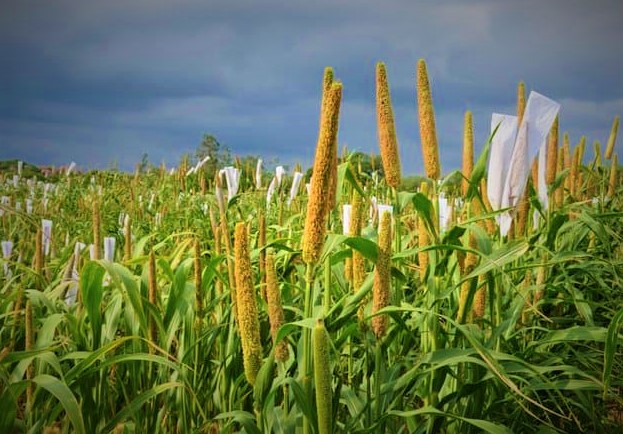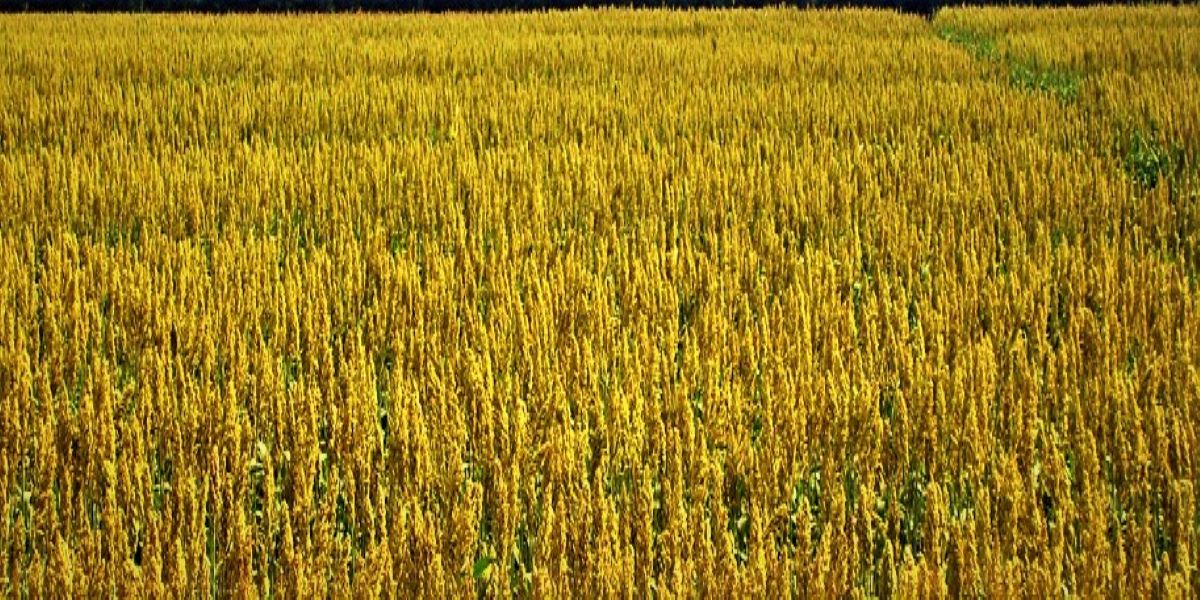Jowar
Jowar is generally referred to as by way of numerous names across india- jwaarie, jowar, jola, or jondhalaa and is used to make bhakri, jowar roti, or jolada rotti. Its english call sorghum, comes from the family it belongs to, sorghum vulgare.
Appreciably cultivated in asia and africa, jowar is a staple source of nutrients in regions which can be arid, and it additionally does no longer want unique care for developing. There are 30 kinds of sorghum, simplest one in all that’s used for human intake. It’s far the 5th most critical cereal within the international.
Significance of Jowar
sorghum or jowar is one of the crucial meals and fodder cereal crops. The dietary fee of sorghum is the same as that of corn, which is why it’s far gaining importance as cattle feed. Sorghum (or) jowar is also used for ethanol manufacturing, generating grain alcohol, starch production, production of adhesives and paper apart from meals and feed for livestock.
Jowar (or) sorghum cultivation is gaining popularity due to its nature of intense drought tolerance. Sorghum may be very nutritious, similar to corn, and may be used as green fodder, dry fodder, hay, or silage.
Growing Condition for Jowar
jowar is grown each as kharif in addition to a rabi crop. As a kharif crop, it grows well in areas having suggest monthly temperature of 26°c to 33°c. However, the rabi crop can be grown in regions where the imply month-to-month temperature does not fall underneath sixteen°c.
It requires more than 30 cm rainfall throughout the growing duration and does no longer develop where the rainfall exceeds a hundred cm. Jowar is par excellence a rainfed crop of dry farming areas where irrigation isn’t always used. Each excessive moisture and extended droughts are dangerous for its right boom.
Although it can be grown in a selection of soils inclusive of loamy and sandy soils, clayey deep regur and alluvium are the first-class acceptable soils for jowar. Maximum of the crop is grown in undeniable areas however it can additionally be raised on gentle slopes upto 1,2 hundred metres top.
Location and manufacturing of jowar
jowar is cultivated as a major food crop in a whole lot of south asia, africa and critical the usa. In u. S., australia and south america, sorghum is grown mainly for animal feed. Sorghum is tailored to warm and dry climate and in large part cultivated in drought susceptible regions of the world. In those regions, sorghum is generally grown with confined inputs in conditions of sparse rainfall and occasional soil fertility, with bad yields.


Lower common yields are in most cases a result of the new, dry situations where sorghum is usually grown, rather than sorghum plant’s capability.
In fact, sorghum has excessive yield capability, corresponding to rice, wheat and maize. On a subject basis, sorghum yields have handed eleven. Zero t ha-1, with above common yields starting from 7. 0 to 9. 0 t ha-1 wherein moisture is not a restricting aspect. In regions in which sorghum is generally grown, yields of three. 0 to four. 0 t ha-1 are received beneath higher situations, losing all the way down to three hundred to a thousand kg ha-1 as moisture and soil fertility end up proscribing.
A majority of the subsistence farmers who normally domesticate this crop are not able to take benefit of excessive yield potential due to the fact they have confined options for enhancing their control practices. For this reason, sorghum manufacturing can be achieved via growing verities/hybrids with advanced tolerance to drought and occasional soil fertility and resistance to pests and illnesses.
World manufacturing of sorghum cereal grain in 2005-06 changed into fifty eight. 9 m t, the production being stable over a protracted time period.
Jowar manufacturing in India
In india, jowar plant is grown in regions with much less than one hundred cm rainfall and temperature ranging from 26 deg to 33 deg c. After wheat, the sorghum or jowar is the grain with the very best cultivable land inside the united states. It is grown as a rabi crop and in a few regions as a kharif crop, from the months of October to February.
For cultivation of jowar, the soil requirement in india is normally regur soil, with clayey and alluvium properties. Regions in which the intake of jowar is excessive, they’re grown in among the agricultural lands. For the duration of the growing season, it requires rainfall, whilst the maturity of the plant life is seen mostly all through the north easterly winds and temperature is truly better in wintry weather.
As a part of the meals grain in India, jowar is produced to the quantity of approximately 8% of the full region, whilst some of the cereals, it has the capability of about 10%. Output within the united states of America is about four. Three% the various cereals inside the us of a. Over the many years, the region beneath production of jowar and its overall output has long gone down. Total vicinity of 184 lakh hectares in 1961 has come right down to about ninety two lakh hectares in 2003.
Majority of the lands below jowar cultivation is in peninsular India, with the states of Andhra Pradesh, Karnataka and Madhya Pradesh taking up about seventy eight% share of land and eighty one% of the produce. North western states like Haryana, Rajasthan and Uttar Pradesh provide some crucial contribution

